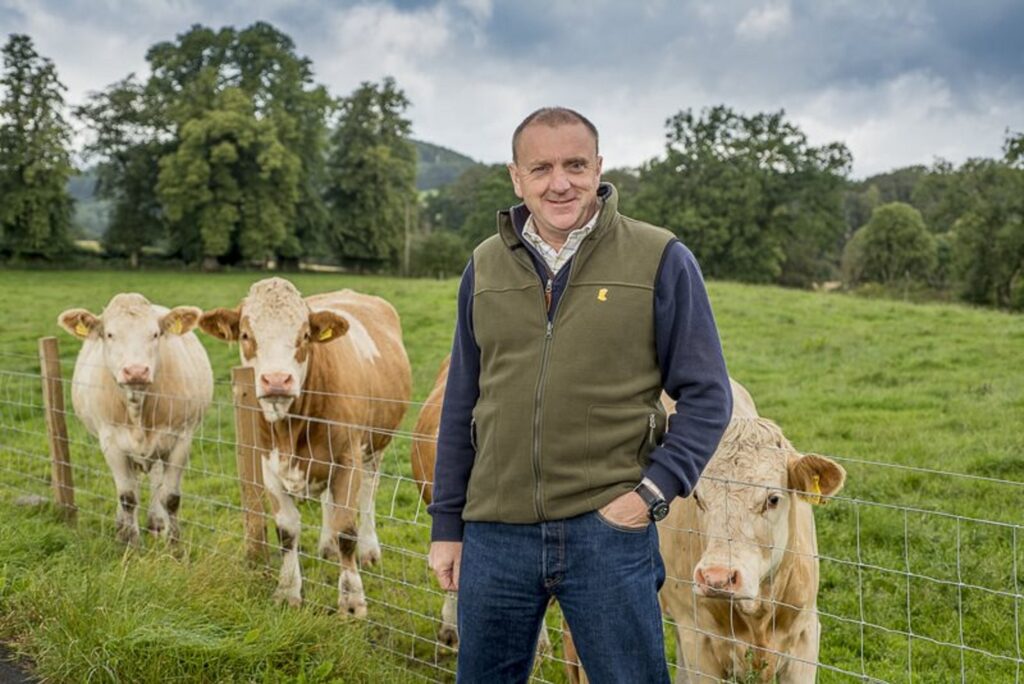Farms with Succession Plans in place are climbing as farmers do what they can to protect their future

The number of farmers with succession plans in place is climbing steadily amid huge financial changes to the industry, according to new research by leading rural insurer NFU Mutual.
Nearly half of farmers (48.6%) now have a plan on how they’re going to hand the farm on to the next generation, findings from an extensive survey of 1,652 farmers across the UK have shown. This increased from 42.3% in 2020.
Even more encouragingly, the number of farmers who have recently reviewed their plan to make sure it is still relevant increased from 27.4% in 2020 to just over a third (33.2%) in 2021.
Farmers are doing what they can to secure the future of their farms at a time when UK farming is undergoing huge financial transition. As well as changes to subsidies, Defra are proposing to introduce exit payments to English farmers leaving the industry. There has arguably never been a more critical time to discuss how the farm will be handed on.
However, while the number of farmers with a succession plan is rising, just over half (51.4%) still don’t have one. A third of farmers (32.6%) say succession is not relevant to them, although that has dropped from 40.6% suggesting more are realising the importance of planning for a handover.
Almost a fifth (18.8%) of farmers agree that a succession plan is important for their farm, but they haven’t got round to setting one up yet.
Although many farmers are still waiting for more detail behind Defra’s lump sum exit scheme, it remains both financially and emotionally important for farmers to speak to their families about the future.
Jim McLaren, Chairman of NFU Mutual, said:
“As a farmer myself, I know first-hand that farming isn’t just a job, but a way of life. Farms often involve the whole family and span generations. So when you think about the future of your farm, it’s not just a question of land and assets; the attachment that you and your family have to your farming lifestyle often runs much deeper than that. These considerations can make it complicated to plan for the future of the farm, especially when it comes to handing over the reins to the next generation.
“There is currently plenty for farmers to contend with – from Brexit to Covid, to subsidies and rising costs. Confronting these challenges often leaves little time for planning for the future. However, it is also true that events such as the Covid pandemic can shine a much-needed spotlight on the need to plan for the future. Now, more than ever, it’s essential to ensure your farm and your finances are in order.”
A critical time for succession planning
Financial planning when handing over a farm has always been essential for farmers keen to avoid unwanted tax bills, but there are a number of changes that have heightened this need.
As well as changes to subsidies and exit proposals, farmers will be watching the upcoming Chancellor’s Budget closely for any changes to Capital Gains Tax and other taxes that could affect them.
Sean McCann, Chartered Financial Planner at NFU Mutual, said:
“It’s the aim of many farmers to hand the business on to the next generation. Some are happy to do this during their lifetime, while others want to hold onto everything until the day they die. There is no ‘right time’ but having a plan not only allows for a smoother transition, it can also play a big part in securing the future of the family farm.
“It’s encouraging to see more farmers putting plans in place, with the industry going through a big transition with changes to subsidies and the exit scheme proposals.
“Handing on the farm doesn’t have to mean giving away the ownership of all the assets on day one. The older generation could look to hand over more of the day-to-day management of the business while retaining the ownership of the assets to a later date.
“Regardless of how you plan to hand the farm on, the aim should be to do it without paying more tax than you need to. There are a number of tax breaks available, and it’s important to take advice to maximise the benefits and avoid the pitfalls.
“It’s important to involve the whole family when planning succession to understand what role each member of the family will play in the future, and how assets will be owned in the short, medium and long term.
“Unexpected events can happen to any family, so having the right wills and agreements in place can help make sure the ownership of the business ends up in the right hands at the right time.
“It’s also important that the right income protection and life insurance is in place, so that if an unexpected illness or tragedy did strike, the family and the business are protected.”



